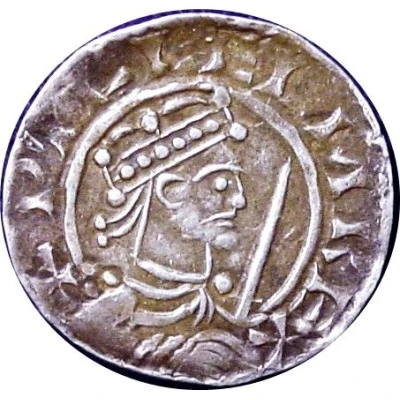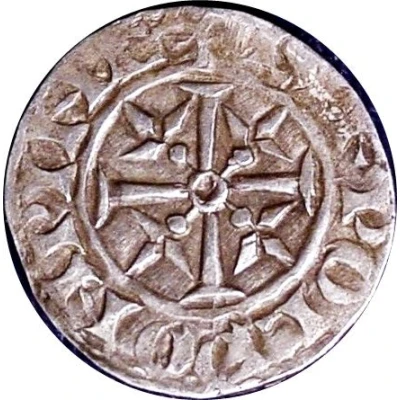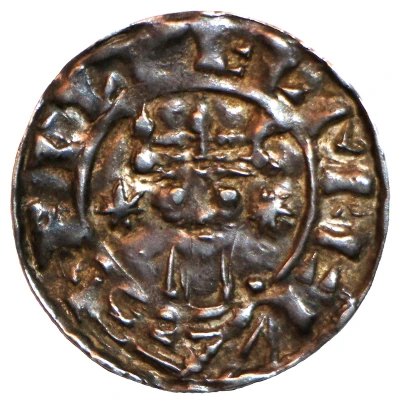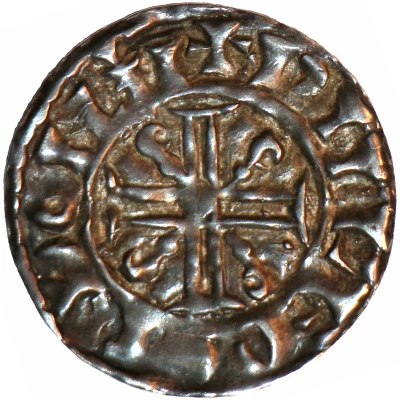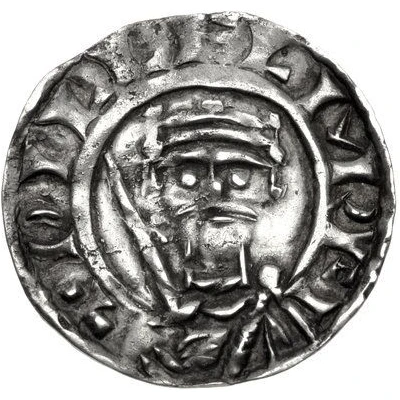
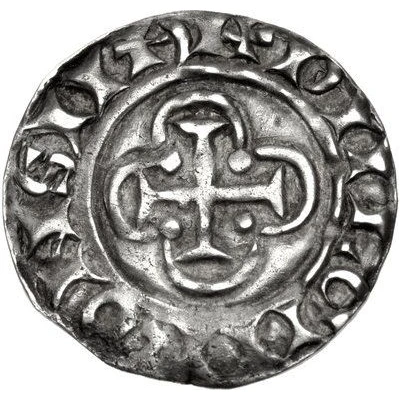

© Classical Numismatic Group, Inc.
Penny - William II Cross in Quatrefoil type ND
| Silver | 1.19 g | 20 mm |
| Issuer | England (United Kingdom, British Overseas Territories and Crown Dependencies) |
|---|---|
| King | William II (1087-1100) |
| Type | Standard circulation coin |
| Years | 1089-1092 |
| Value | 1 Penny |
| Currency | Penny (924-1158) |
| Composition | Silver |
| Weight | 1.19 g |
| Diameter | 20 mm |
| Shape | Round (irregular) |
| Technique | Hammered |
| Demonetized | Yes |
| Updated | 2024-10-09 |
| Numista | N#316623 |
|---|---|
| Rarity index | 100% |
Reverse
Legend around short cross potent, with pellet in each quarter, all within quatrefoil.
Lettering: + ǷIILGIIR ON SIIÐ
Translation: Wulfgar of Southwark
Comment
Norman Kings (1066-1154), William II (1087-1100), Cross in quatrefoil type penny.Southwark mint; Wulfgar, moneyer; struck 1089-92. B.M.C. 2
William II (William Rufus) was the second son of William the Conqueror and was killed while hunting in the New Forest. Five of the thirteen coin types in the name of 'William' have been assigned to the reign of William II, although it remains uncertain whether the Paxs type of his father continued into his reign.
Interesting fact
One interesting fact about the Standard circulation coin Penny - William II (Cross in Quatrefoil type) ND (1089-1092) from England (United Kingdom, British Overseas Territories and Crown Dependencies) made of Silver weighing 1.19 g is that it was minted during the reign of King William II, also known as William Rufus, who was the second son of William the Conqueror and ruled England from 1087 until his death in 1100. This coin was part of a series of coins minted during his reign that featured a cross in a quatrefoil design, which was a common motif in medieval coinage. Despite being made of silver, this coin was not worth a significant amount of money in its time and was likely used for everyday transactions. Today, however, it is a rare and valuable collector's item for numismatists interested in medieval coins.
